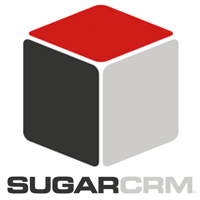
SugarCRM on Thursday announced Sugar Mobile 5.0, the latest version of its app for iOS and Android.
Sugar Mobile 5.0 includes a host of new features:
- a redesigned user experience based on customer feedback;
- support for Apple’s Touch ID;
- a new Sugar MACS service that lets users customize login, splash and loading screens to support their organization’s branding, look and feel without coding;
- enterprise mobile management (EMM) support through app wrapping;
- inclusion of the AppConfig standard, which uses EMM solutions to make app management easier;
- mobile deep linking; and
- offline storage mode.
“Sugar Mobile 5.0 focuses on task-specific interactions,” said SugarCRM spokesperson Andrew Staples.
“We’ve streamlined the experience by reducing the number of clicks needed to reach critical CRM data by improving navigation and reordering tabs and elements,” he told CRM Buyer.
The Importance of Going Mobile
Mobile “is no longer just a table stake feature,” Staples said. “Customers expect more than just a downsized version of the browser-based experience inside their mobile device.”
In the future, the general use case for CRM will be mobile, Staples predicted, and desktop CRM will support more specialized tasks.
Some SugarCRM customers have been sending reps into the field with tablets instead of laptops, Staples noted, and they have identified certain mobile CRM criteria:
- a system that is optimized to take full advantage of the device’s capabilities;
- a user experience that is personalized according to individual needs;
- an enterprise-ready mobile client that allows easy adoption of EMM, BYOD and corporate data plans without hindering business operations; and
- a flexible client that supports aspects that are unique to a company, such as branding, business processes and internal roles.
SugarCRM’s mobile SDK is currently in beta and will be available this summer, Staples said.
“A key part of mobile is going to continue to be the democratization of the app development process,” noted Rebecca Wettemann, VP of research at Nucleus Research.
Another will be “enabling business users to spin up ‘temporary apps’ that expose CRM data for specific — and often time-limited — use cases,” she told CRM Buyer.
Gunning for the Enterprise
SugarCRM “is advancing beyond the mid-market with global deployment for companies that want to take advantage of its flexibility and customization,” Wettemann pointed out.
“They have some good and credible enterprise customers,” noted Denis Pombriant, principal at Beagle Research Group.
“They’re moving upstream,” he told CRM Buyer.
SugarCRM’s push into the enterprise is fueled by partnerships with IBM, Wipro and Hewlett Packard Enterprise.
The bulk of its customers are still small and mid-sized businesses, noted Cindy Zhou, a principal analyst at Constellation Research.
SugarCRM competes with Salesforce and Microsoft Dynamics on the enterprise side, she told CRM Buyer, while competitors in the SMB space include Zoho and FreshSales.
Mobile CRM Changes
Mobile CRM apps previously “had limitations on heavily customized screens, fields and processes,” noted Zhou. “Managing restrictions on what users could view and edit were also a challenge.”
However, the situation is improving, she said. “For example, Microsoft’s adding in a host of sales productivity features that help sales reps reduce the amount of time spent on administrative tasks, and provide more flexibility in customization.”
Salesforce’s announcement of the Einstein High Velocity Sales Cloud earlier this week “includes an improved mobile productivity component,” Zhou said.
Getting mobile CRM right will “improve sales productivity by reducing the amount of time sales staff spend on updating CRM, which is one of their top complaints,” she added. That will increase usage and “lead to better data and insights for companies to forecast business.”


























































Great detailed and explained. I will come back again to read some more interesting things on this topic.